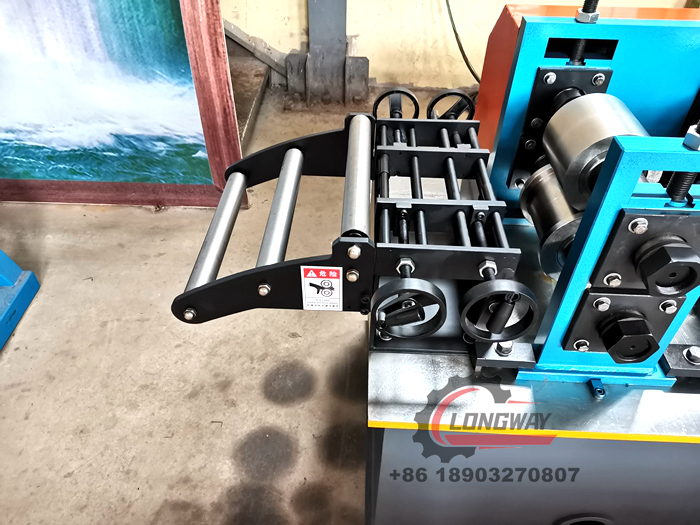Different Types of Roll Forming Machine Manufacturers and Their Specializations
Types of Roll Forming Machine Factories
Roll forming is a highly efficient manufacturing process used to create long lengths of metal components bent into specific shapes. It involves the continuous bending of a strip of metal whenever it passes through sets of rolls. This manufacturing method is widely adopted across various industries due to its ability to produce consistent, high-quality metal products at a fast pace. To meet the diverse demands of the marketplace, several types of roll forming machine factories have emerged, each focused on different aspects of this essential manufacturing technique.
1. Standard Roll Forming Factories
Standard roll forming factories focus on producing common profiles such as C, U, Z, or L shapes, which are widely used in building construction, automotive components, and appliance manufacturing. These factories utilize high-speed, fully automated roll forming machines that can handle a variety of materials including steel, aluminum, and stainless steel. The advantage of these factories lies in their ability to produce high volumes of standard profiles efficiently, ensuring fast delivery times and competitive pricing.
2. Custom Roll Forming Factories
Unlike standard roll forming factories, custom roll forming facilities specialize in creating tailored profiles according to specific customer requirements. They collaborate closely with clients to design unique shapes and sizes that cater to niche applications. These factories often have more flexible machinery that can be adjusted for different thicknesses and shapes. The process usually involves creating prototypes and conducting trials to ensure that the final products meet the desired specifications. Custom roll forming factories are invaluable to industries where standard products may not fit or function appropriately, such as in specialized machinery, custom construction projects, and bespoke furniture manufacturing.
3. Heavy-Duty Roll Forming Factories
types of roll forming machine factories

Some industries require roll forming machines that are capable of handling heavier materials and producing more robust profiles. Heavy-duty roll forming factories focus on creating strong, durable metal components for industries such as structural steel, transportation, and heavy machinery. These factories utilize advanced technology and powerful machinery designed to manage thicker gauges of metal and produce more intricate shapes. The strength and durability of products from these factories are crucial in applications such as the construction of bridges, commercial buildings, and industrial equipment.
4. Eco-Friendly and Energy-Efficient Roll Forming Factories
With increasing awareness of environmental issues, a growing number of roll forming factories are becoming eco-friendly and energy-efficient. These factories incorporate sustainable practices, such as using recycled materials and minimizing waste during the manufacturing process. They might utilize innovative technologies, such as regenerative drives and energy-efficient motors, to reduce energy consumption. By focusing on sustainability, these factories appeal to environmentally conscious consumers and industries, helping to reduce the overall carbon footprint of the metal manufacturing sector.
5. High-Tech Roll Forming Factories
As technology continues to advance, the introduction of high-tech roll forming factories has become more prevalent. These facilities leverage state-of-the-art automation, computer numerical control (CNC), and industrial robotics to enhance productivity and precision. High-tech roll forming factories often specialize in producing parts for the automotive and aerospace industries, where accuracy and adherence to strict tolerances are paramount. The integration of Industry 4.0 concepts allows these factories to monitor production processes in real-time, improving efficiency and reducing downtime.
Conclusion
The diversity of roll forming machine factories reflects the varied needs of industries around the world. From standard production facilities to custom shops, heavy-duty operations to environmentally conscious factories, each type plays a significant role in the supply chain. As technology continues to evolve and the demand for customized solutions grows, the roll forming industry will likely see more innovation and specialization. Understanding the different types of roll forming machine factories helps businesses and consumers make informed decisions when seeking manufacturing solutions for their metal forming needs.
-
The Role of Hydraulic Systems in Sheet Metal SlittersNewsAug.23, 2025
-
Customization Options in Metal Deck Roll Forming MachinesNewsAug.23, 2025
-
Safety Tips When Using a Gutter Making MachineNewsAug.23, 2025
-
Key Components of a C Purlin Machine ExplainedNewsAug.23, 2025
-
Maintenance Tips for a Steel Angle Roll Forming MachineNewsAug.23, 2025
-
Portable Metal Roofing Machine Applications in Remote ConstructionNewsAug.23, 2025
-
Roof Panel MachineNewsAug.18, 2025








